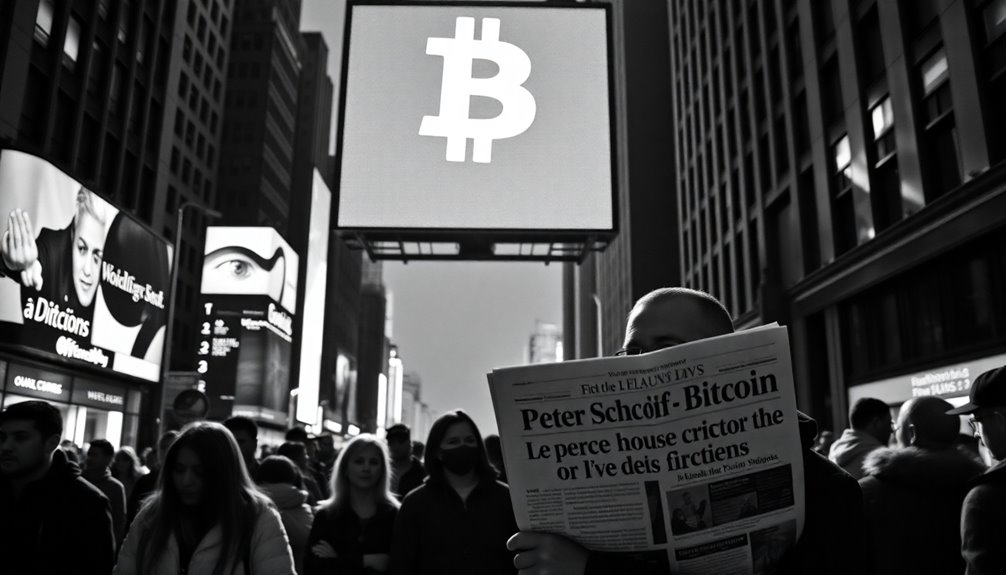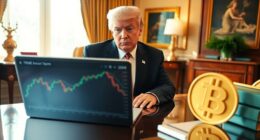You might be surprised by Peter Schiff's staunch opposition to the concept of a Bitcoin reserve. He calls its promotion "fraudulent" and raises concerns about the potential for market instability. Schiff's arguments highlight the risks associated with Bitcoin's volatility and the legal challenges cryptocurrencies face. What does this mean for the future of digital currencies and the broader financial landscape? Let's explore the implications of his criticism.

The idea of a Bitcoin reserve has sparked intense debate, with critics highlighting significant economic risks and market volatility. One of the most vocal critics is Peter Schiff, who warns that establishing a Bitcoin reserve could lead to hyperinflation and undermine the stability of the US dollar. He argues that excessive government purchases of Bitcoin could trigger a market collapse, causing unpredictable price fluctuations that would hurt investors.
You might wonder why Schiff holds such strong views. He compares Bitcoin unfavorably to gold, questioning its viability as a stable store of value. Schiff believes that Bitcoin's performance has consistently lagged behind gold, making it a questionable choice for a reserve asset. Given his perspective, he finds it unlikely that a Bitcoin reserve will ever be implemented in practice. This skepticism stems from his concern about the economic risks associated with cryptocurrency and the potential adverse effects on broader financial markets.
Supporters of the Bitcoin reserve concept, including figures like Senator Cynthia Lummis, argue that it could provide economic benefits by introducing a new asset class. They claim that a Bitcoin reserve could bolster the US economy, but Schiff firmly disagrees. He sees this as a dangerous gamble that could lead to significant market instability and liquidity risks for investors. If a reserve were to be created, Schiff believes it would exacerbate the already volatile nature of the cryptocurrency market, making it an even riskier investment. Notably, some advocates of a national crypto reserve emphasize that diverse cryptocurrencies in reserves could stimulate blockchain innovation and foster economic growth.
Supporters argue a Bitcoin reserve could boost the economy, but Schiff warns it may lead to instability and increased risks for investors.
When the prospect of a Bitcoin reserve surfaces, market reactions can be dramatic. You might notice how such announcements often lead to significant price fluctuations in the cryptocurrency market, stirring investor interest and speculation about Bitcoin's future. However, this volatility raises concerns for many who are already cautious about the inherent risks of investing in cryptocurrencies.
Regulatory challenges also complicate the Bitcoin reserve proposal. The classification of cryptocurrencies as securities remains a contentious issue, and targeting specific cryptocurrencies for a reserve could create legal hurdles. Schiff sees these regulatory uncertainties as additional reasons to doubt the feasibility of a Bitcoin reserve.









